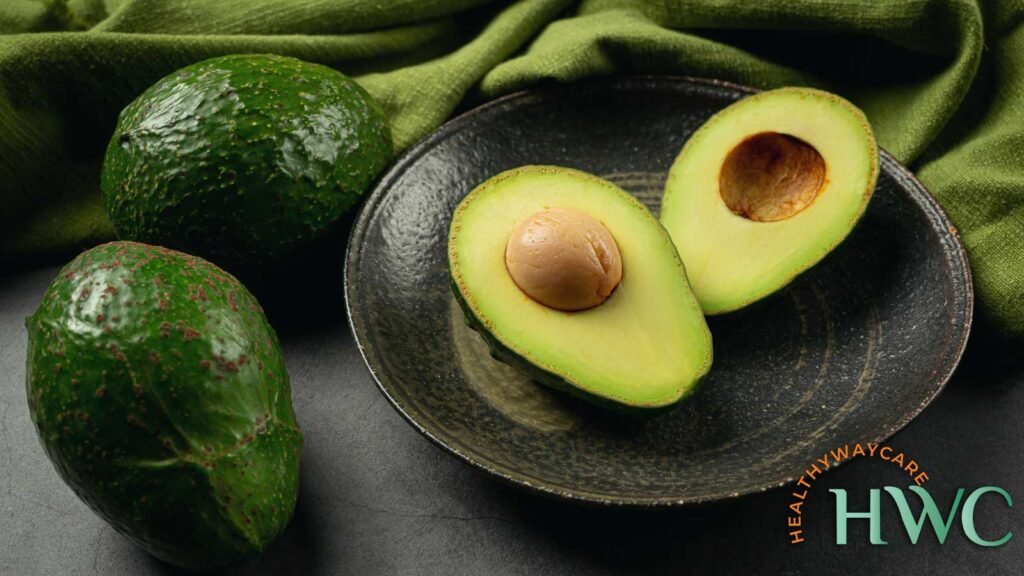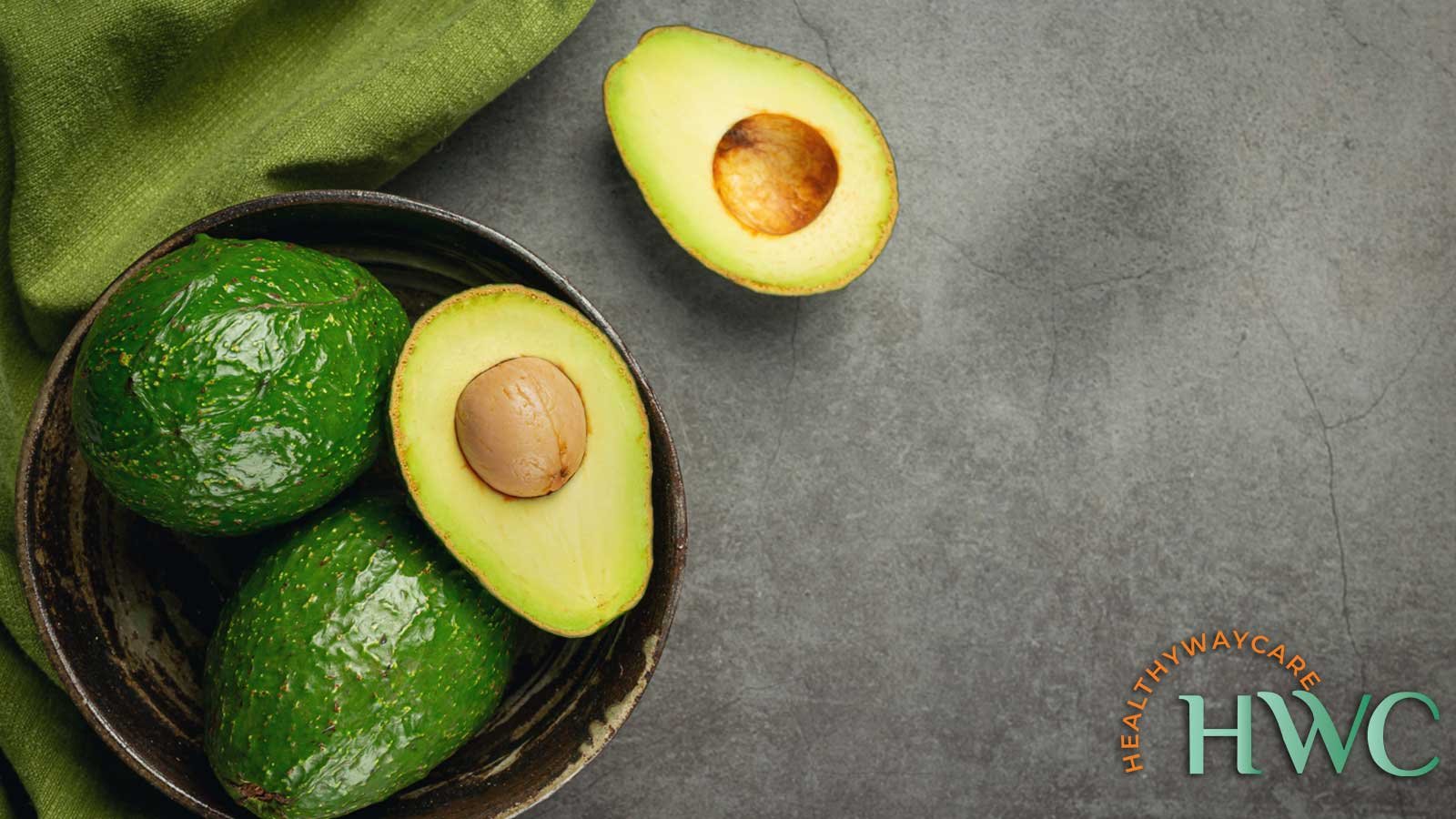Avocado, the creamy and delicious fruit that’s so much more than just a topping for your toast! This humble green gem is packed with nutrients and offers a myriad of health benefits that you might not be aware of. From promoting heart health to boosting brain function, let’s delve into the fantastic world of avocado benefits.
Table of Contents
Avocado health benefits
Introduction to Avocado
Avocado, scientifically known as Persea americana, is a nutrient-dense fruit native to Central America. It’s often referred to as the “alligator pear” due to its shape and rough green skin. Despite being high in fat, avocados are incredibly nutritious and are a staple in many healthy diets worldwide.
Avocado health benefits -Nutritional Profile
Avocados are a powerhouse of nutrients. They are rich in healthy monounsaturated fats, which are beneficial for heart health. Additionally, they contain an array of vitamins and minerals, including potassium, vitamin K, folate, vitamin C, and vitamin E. These nutrients play crucial roles in various bodily functions, such as maintaining healthy blood pressure, supporting bone health, and boosting immunity.
Heart Health Benefits
One of the most well-known benefits of avocados is their positive impact on heart health. The monounsaturated fats in avocados help lower bad cholesterol levels (LDL) while increasing good cholesterol (HDL), reducing the risk of heart disease and stroke. Moreover, avocados are an excellent source of potassium, which helps regulate blood pressure and prevent hypertension.
Improved Digestion
Avocados are loaded with fiber, making them a fantastic choice for promoting digestive health. Fiber adds bulk to stool, facilitating smooth bowel movements and preventing constipation. Additionally, avocados contain natural enzymes that aid in the breakdown of food, promoting optimal nutrient absorption and overall digestive function.
Weight Management
Contrary to popular belief, incorporating avocados into your diet can actually support weight management efforts. The combination of healthy fats and fiber helps increase feelings of satiety, keeping you full and satisfied for longer periods. Additionally, avocados can help regulate blood sugar levels, reducing cravings and preventing overeating.

Exploring the Wonders of Cardamom: Unveiling its Remarkable Benefits
Avocado health benefits – Glowing Skin
If you want radiant and youthful-looking skin, look no further than avocados. These green wonders are packed with antioxidants like vitamin E and vitamin C, which help combat free radicals and prevent premature aging. Furthermore, the healthy fats in avocados nourish the skin from within, keeping it moisturized and supple.
Avocado health benefits – Eye Health
Protecting your vision is crucial, and avocados can help with that too! They contain lutein and zeaxanthin, two powerful antioxidants that are essential for eye health. These compounds help protect the eyes from harmful UV rays and reduce the risk of age-related macular degeneration and cataracts.
Avocado health benefits – Brain Boost
Fuel your brain with the goodness of avocados! The monounsaturated fats in avocados support healthy brain function and improve cognitive performance. Additionally, avocados contain vitamin E, which has been linked to a reduced risk of Alzheimer’s disease and age-related cognitive decline.
Anti-inflammatory Properties
Chronic inflammation is linked to various diseases, including arthritis, heart disease, and cancer. Luckily, avocados possess potent anti-inflammatory properties, thanks to their high levels of antioxidants and monounsaturated fats. Incorporating avocados into your diet can help reduce inflammation and lower the risk of developing inflammatory conditions.
Avocado health benefits– Boosted Immunity
Keep your immune system strong and resilient with avocados. They are packed with immune-boosting nutrients like vitamin C, vitamin E, and antioxidants, which help strengthen the body’s defense mechanisms against infections and illnesses. Adding avocados to your diet can help you stay healthy and ward off common colds and flu.
Avocado oil benefits
Avocado oil offers numerous benefits, including moisturizing and nourishing the skin, promoting hair health, and providing antioxidants that protect against free radicals. Its rich composition of vitamins and healthy fats makes it a versatile and beneficial addition to skincare and haircare routines.
Benefits of eating avocado
Eating avocados provides a wealth of benefits, such as improving heart health by lowering cholesterol levels, supporting weight management due to their high fiber content, and promoting glowing skin and hair thanks to their abundance of vitamins and healthy fats.
Avocado benefits for women
Avocado offers specific benefits for women, including supporting hormonal balance, promoting healthy pregnancy with its folate content, and enhancing skin elasticity to combat signs of aging. Its nutrient-rich profile makes it an excellent addition to women’s diets for overall well-being.
Avocado health benefits – Pros and cons
Pros:
- Nutrient-Dense: Avocados are packed with essential nutrients like vitamins (such as vitamin K, vitamin C, and vitamin E), minerals (including potassium and magnesium), and healthy fats.
- Heart Health: The monounsaturated fats in avocados can help lower bad cholesterol levels (LDL) and raise good cholesterol levels (HDL), promoting heart health and reducing the risk of heart disease.
- Weight Management: Despite being calorie-dense, avocados contain fiber and healthy fats that contribute to increased satiety, aiding in weight management by curbing hunger cravings.
- Improved Digestion: Avocados are an excellent source of dietary fiber, which supports digestive health by promoting regular bowel movements and preventing constipation.
- Skin and Hair Health: The antioxidants and healthy fats in avocados nourish the skin from within, promoting a healthy complexion and preventing premature aging. Additionally, applying avocado oil topically can moisturize and strengthen hair.
- Eye Health: Avocados contain antioxidants like lutein and zeaxanthin, which are beneficial for eye health and may reduce the risk of age-related macular degeneration.
Cons:
- High Caloric Content: While avocados are nutrient-dense, they are also calorie-dense. Consuming too much avocado, especially if not balanced with other foods, may lead to excess calorie intake and weight gain.
- Potential Allergies: Some individuals may be allergic to avocados, experiencing symptoms such as itching, swelling, or hives. It’s essential to be cautious if you have known allergies to latex, as cross-reactivity with avocados is possible.
- Digestive Issues: Although avocados are a good source of fiber, consuming large amounts may cause digestive discomfort, such as bloating or gas, particularly in individuals not accustomed to high-fiber diets.
- Cost: Avocados can be relatively expensive, especially when not in season or in regions where they are imported. This may make them less accessible to some individuals or families on a tight budget.
- Short Shelf Life: Avocados ripen quickly and have a limited shelf life once they reach optimal ripeness. This can lead to food waste if not consumed promptly or stored properly.
- Environmental Impact: Avocado cultivation requires a significant amount of water, and in some regions, it contributes to deforestation and habitat destruction. Additionally, transportation of avocados from producing regions to consumer markets can have environmental implications due to carbon emissions.
Overall, while avocados offer numerous health benefits, it’s essential to consume them in moderation as part of a balanced diet and consider potential drawbacks such as allergies, cost, and environmental impact.
How many calories are in an avocado?
On average, a medium-sized avocado contains around 160 calories. However, the exact calorie content may vary depending on the size and variety of the avocado.
Are avocados suitable for people with diabetes?
Yes, avocados are suitable for people with diabetes. They have a low glycemic index and are rich in fiber and healthy fats, making them an excellent choice for managing blood sugar levels.
Can avocados help lower cholesterol?
Yes, avocados can help lower bad cholesterol (LDL) levels while increasing good cholesterol (HDL), thereby reducing the risk of heart disease and stroke.
Are there any side effects of eating avocados?
While avocados are generally safe for consumption, some people may experience allergic reactions or digestive issues. It’s essential to consume them in moderation as part of a balanced diet.
Conclusion
In conclusion, avocados are not just delicious; they are incredibly nutritious and offer a wide range of health benefits. From promoting heart health and improving digestion to enhancing skin radiance and boosting brain function, avocados are truly a superfood. So, next time you’re at the grocery store, be sure to pick up some avocados and reap the amazing health rewards!


Точно актуальные новости модного мира.
Важные новости лучших подуимов.
Модные дома, торговые марки, haute couture.
Интересное место для трендовых людей.
https://balmain1.ru/
https://balmain1.ru/
Наиболее стильные новости мира fashion.
Актуальные события мировых подуимов.
Модные дома, лейблы, высокая мода.
Новое место для модных людей.
https://metamoda.ru/
https://metamoda.ru/